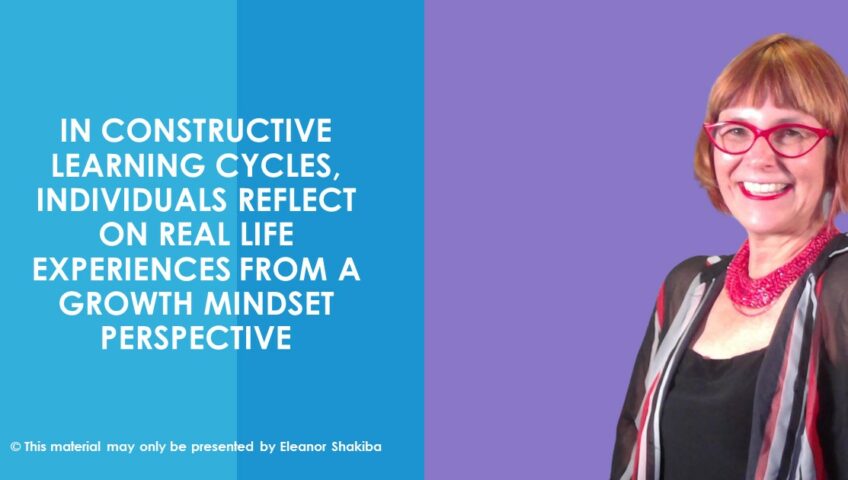Yes. There is a dark side to self-awareness. Facilitators and coaches need to be aware of this when working with highly sensitive clients. For most people, building self-awareness leads to improved social and communication skills. It also promotes deep level learning. However, in individuals with a hypercritical inner dialogue, boosting self-awareness can lead to self-consciousness and imposter syndrome.
How does this happen? More importantly, what can positive psychology trainers do to prevent it? Answering these questions means understanding the process of metacognition and how it links to learning. Humans are unique in their ability to think about thinking. Known as metacognition by psychologists, this capability enables your clients to learn from experience. It also allows them to assess the impact of their own actions on others.
This is why all the best trainers and facilitators tout the value of reflective learning. However, we need to do this with clear boundaries in place. Always remember that for highly sensitive people, experiential learning can switch from constructive to destructive mode all too easily.
The switch happens when a learner talks to themselves inwardly about their actions or experiences. In constructive learning cycles, individuals reflect on real life experiences from a growth mindset perspective. This means they generate a supportive and learning focused inner dialogue. Highly sensitive learners, on the other hand, sometimes take on a highly critical inner voice. Typically, this emphasises personal flaws. It uses shaming, blaming or complaining to critique the learner’s performance. Once the voice becomes dominant, the learner becomes negatively self-aware. Over time, this leads to imposter syndrome.
Savvy facilitators pre-empt this process. For example, in my positive psychology training courses I teach participants to monitor the tone of their inner dialogue. I ask them to do this as they progress through the three stages of reflective learning. As they review real-life experiences, I instruct learners to focus on what they did well. I ask how they applied their strengths.
During the second stage of reflection, I use solution focused questions to guide learners’ positive insight and conceptualisation. Finally, as learners begin planning for the future, I stress the importance of leaving the past behind. I teach them to consciously adopt new approaches to familiar situations. This promotes a cycle of positive future casting and enables people to learn resiliently.
If you’re committed to bringing out the best in your people, remember that reflection works best when it’s positively focused. As a positive psychology facilitator, listen for external language cues which reveal a learner’s processing habits. Gently guide the reflective process so that your learners can get into the habit of supporting themselves internally. Useful tools for doing this are the meta-model from neurolinguistic programming and the growth mindset model from positive psychology training.
Interested in these techniques from positive psychology? Find out more about them in Eleanor Shakiba’s Positive Psychology Toolkit for HR and L&D Practitioners. Download your free copy here.
About the author: Eleanor Shakiba
Eleanor is a trainer and coach, with a passion for unleashing the power of positive deviance in talented people. She has taught more than 50,000 people how to excel professionally. An expert in the field of Positive Psychology, Eleanor is also qualified in Social Anthropology, Counselling, Coaching, Adult Education and Neuro Linguistic Programming. She specialises in helping HR and L&D practitioners to unleash the power of positive psychology in business. Her major focus in developing three key areas that support positive workplace cultures: positive mindset, proactive communication and purposeful leadership. Eleanor is the author of the Positive Psychology Toolkit for HR and L&D Practitioners. Download your free copy here.
